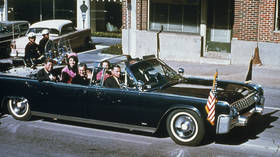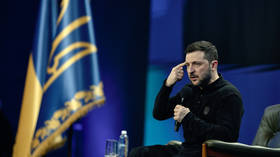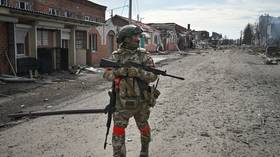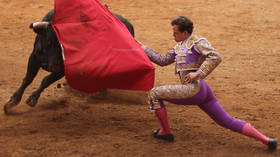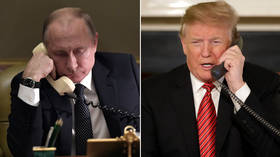Russian doctor who treated Navalny accuses Sunday Times of pushing ‘fake news’ over claims hospital enabled activist’s poisoning
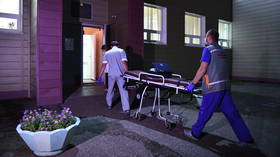
Britain’s Sunday Times delivered an exclusive so fantastical this weekend that even the most committed Russia-bashers stayed quiet. The claim sparked a furious response from the Russian doctors smeared by the leading UK outlet.
Citing the usual anonymous intelligence officials, the newspaper reported that staff at the Siberian hospital where Russian opposition figure Alexey Navalny was admitted in August with suspected poisoning allowed members of the Security Services to enter the stricken activist’s ward. They claim that these officials administered him with a supposed second dose of Novichok, after it appeared that he would recover from the initial alleged poisoning.
Novichok is said to be the world’s most deadly nerve agent. It’s regarded as multiple times more lethal than VX, which was successfully used in the assassination of North Korea’s Kim Jong-nam at a Malaysian airport in 2017. Thus, the idea that anyone could survive a double attack from Novichok seems rather incredible.
Also on rt.com Emerging sanctions-driven EU alliance with Navalny reeks of Western neo-colonial moves which helped destroy Russia in 1990sThe newspaper, which has been known for years as being close to British spooks, didn’t name its source, instead presenting a feeble argument with lots of padding.
The chief toxicologist of the Omsk Region, Alexander Sabaev, denied that outsiders had access to the activist, branding the accusation “fake news” and a made-up story.
“No one except medical professionals had access to [his ward]. This is all fiction – from beginning to end,” Sabaev explained. “There was no poisoning, either initial or secondary. This is fake news.”
The Sunday Times wrote that Navalny had been poisoned twice by the Russian officials – once in his hotel room via his clothing, and then a second time in the hospital. The claim is a significant change from the previous theory that he ingested Novichok via a water bottle. Russian doctors continue to deny the idea that he was poisoned even once.
Also on rt.com Navalny uses meeting between EU officials & pro-West Russian opposition to call for sanctions on Kremlin-linked ‘oligarchs’The newspaper’s latest claim has been subject to online ridicule, with commentators pointing out that Western intelligence sources have been quick to brand Novichok as extremely deadly, while also claiming that it failed to kill Navalny. At the time, the Moscow protest leader was in a coma, and therefore could have been administered many more doses of any nerve agent poison. The story has also been attacked as exposing the naivety of the media and their propensity to publish anything fed to them via government sources. In particular, some have noted that the opposition activist would not have been allowed to fly to Germany for high-quality treatment if the intent was indeed to murder him.
If Putin wanted Navalny dead, he could just have sent an FSB officer into the Omsk hospital to put a pillow over his head while the activist was in a coma. Why go to all the trouble of using Novichok again? This is just such awful rubbish. Does @thetimes think people are idiots?
— Bryan MacDonald (@27khv) December 13, 2020
The Sunday Times’ article was even attacked by liberal Moscow journalist Alexey Venediktov, who said it was so absurd that one might think it was planted by the Russian officials themselves to discredit the idea he was poisoned at all. However, the newspaper did make it clear that it was quoting Western intelligence.
The article also linked the alleged attack on Navalny to that on Grigory Rasputin, a Russian mystic supposedly poisoned in 1916 by Prince Felix Yusupov, the husband of Tsar Nicholas II’s niece.
“Russia’s penchant for poisoning goes back long before Putin,” the article reads. “In tsarist days, legend has it that Prince Yusupov fed cyanide to Rasputin in cakes and a glass of Madeira wine, hoping to kill him.”
Think your friends would be interested? Share this story!




